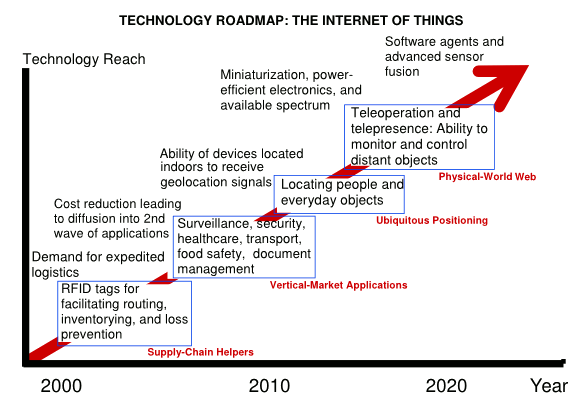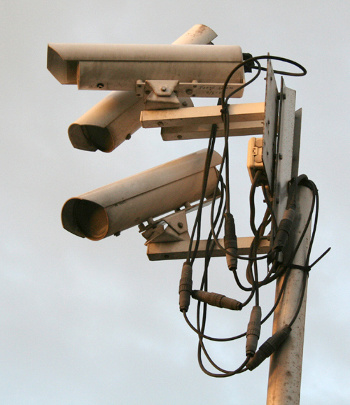
The Internet of Things
October 11, 2013 Humans are inherently lazy creatures, and our economy has shifted to conform as much as possible to enable our sloth. It started innocuously, with things as simple as shelled peanuts. Then came TV dinners, fast food restaurants, microwave popcorn and pudding cups. Now we're trapped; but, the economy is perhaps a little stronger. Internet was developed, a standard addressing scheme was emplaced that assigned an identifying number, called an IP address, to everything on the Internet. This scheme, called IPv4, provided about 4.3 billion unique identifiers. In retrospect, this was a little short-sighted, since the world population was about that number when the standard was set in 1980. Now, with nearly everyone online, and also having multiple devices with connection to the Internet, we're faced with an exhaustion of unique IP addresses. A router protocol known as network address translation (NAT) was a huge help in keeping everyone connected, but we're now forced into compliance with a new Internet address scheme called IPv6. IPv6 supports about 3.4x1038 addresses. That's more than 1028 unique addresses for each person on Earth. There's some logic behind the total number of IPv4 and IPv6 addresses (pun intended). The number of IPv4 addresses is 232, and the number of IPv6 addresses is 2128. Why such a huge jump in number? Wouldn't 264 have been sufficient? Computer programmers, still smarting from the Y2K problem, probably didn't want to get caught with their firewalls down on this one, and no one can predict what the Internet will be used for in the far future. There's already a trend that's eating away at IP addresses, and that's the "Internet of Things." If you're too lazy to check whether your coffee is ready, an Internet-connected coffee maker can signal completion of its coffee brewing cycle, and your smartphone can alert you to the fact that it's coffee time. Your refrigerator can query the RFID tags of stored items, write you a shopping list, and another list of what items should be discarded. These are two examples of the Internet of Things. When toasters are connected to the Internet, the IP address pool starts to shrink. Cisco Systems, which has a commercial interest in Internet connectivity, has started to keep track of connections to the Internet, including the independent devices that comprise the Internet of Things. Its last count, on June 20, 2013, was 9,907,090,400 devices.[1] Cisco predicts that by the year 2020, 250 new things will connect to the Internet each second, and there will be 50 billion devices connected to the Internet at that time.[1]  |
| A technology roadmap for the Internet of Things, as prepared for the US government in 2008. (Wikimedia Commons image, modified for clarity. Click image for a larger version) |
"... Do we want to live in a surveillance society that might ensure justice for all, yet privacy for none? Are we ready to live in a "City of Control" or do we definitely cherish a "City of Trust."[5]
References:
- Karen Tillman, "How Many Internet Connections are in the World?" Cisco Systems Blog, July 29, 2013.
- Michael Mandel, "Can the Internet of Everything bring back the High-Growth Economy?" Progressive Policy Web Site, September 12, 2013.
- Michael Mandel, "Can the Internet of Everything Bring Back the High-Growth Economy?" Progressive Policy Web Site, September 12, 2013 (PDF Policy Memo).
- Stefan Ferber, "How the Internet of Things Changes Everything," Harvard Business Review Blogs, May 7, 2013.
- Gerald Santucci, "Privacy in the Digital Economy: Requiem or Renaissance? An essay on the future of privacy." Privacy Surgeon Web Site, September, 2013 (PDF File).
- Internet of Things Demands New Social Contract To Protect Privacy, Security Ledger Web Site, September 19, 2013.
- Michael Mandel, "Can the Internet of Everything bring back the High-Growth Economy?" Progressive Policy Web Site, September 12, 2013.

